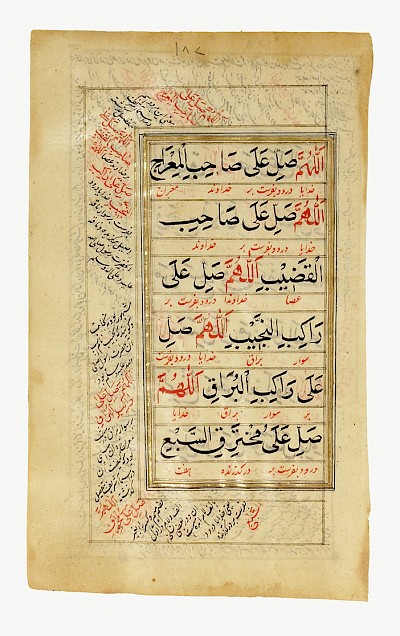
Syed Abul A'la Maududi (1903-1979) is one of the leading Muslim idols of the 20th Century. He was a journalist, 
religious scholar, and political leader in the mould of Maulana Abul Kalam Azad. He wrote and spoke extensively on
various topics (Islam, Quran, Hadith, Politics, etc), during his lifetime. His works have been translated into many languages as he attracted a significant following around the Muslim world among students, intellectuals and politicians.
Maulana Maududi wanted to revive Islam as he understood it and believed in the application of Sharia to prevent the expansion of Western civilization. He inspired prominent individuals like Sayyid Qutb, General Zia-ul-Haq, and Imam Khomeini on one hand; and organizations like Jama'at-e-Islami (Indo-Pak) and Ikhwan-ul-Muslimoon (Egypt) on the other. Maulana opposed the idea of creation of Pakistan, but moved here after its foundation and spent the rest of his life trying to transform it into a “true Islamic state”.
I was introduced to Maulana Maududi through his landmark work Tafheem-ul-Quran in my adolescence and then read almost all his books. As a child, I also had the opportunity to see and hear from him directly in his later years. Tafheem is considered his best work by far (I read it six times in those days), other than perhaps Khilafat-O-Malooqiat, as it has introduced many young people to a simple but deftly composed translation and exegesis of the Quran.
I intend to stay clear of Maulana’s politics in this article and examine his understanding of the Quran as he expounded it in Tafheem-ul-Quran. As an ardent student of the Quran, I feel I have the privilege and the compulsion to carry out this assignment on personal and public service grounds. This monumental work had originally come out in six volumes and was completed in approx. thirty years. As a minor academic, my final disclaimer is that this review may not in any way be considered as an attempt to lessen Maulana’s status or hurt the delicate feelings of his devoted followers.
 There is a consensus among Muslim and non-Muslim scholars that the Quran has its own unique style and rhythm that is neither poetry nor prose. Along with its sublime beauty and grandeur, it is impossible to translate it into another language while retaining its ingrained spirit and profundity. This is somewhat similar to translating a great piece of literature; but in addition, the Quran contains a charter of human rights and a universal constitution among other unique features. Furthermore, the classical Arabic language used in the Quran contains certain words according to the prevalent traditions, culture, concepts and values that do not exist in another language.
There is a consensus among Muslim and non-Muslim scholars that the Quran has its own unique style and rhythm that is neither poetry nor prose. Along with its sublime beauty and grandeur, it is impossible to translate it into another language while retaining its ingrained spirit and profundity. This is somewhat similar to translating a great piece of literature; but in addition, the Quran contains a charter of human rights and a universal constitution among other unique features. Furthermore, the classical Arabic language used in the Quran contains certain words according to the prevalent traditions, culture, concepts and values that do not exist in another language.
Before Maulana Maududi translated the Quran in his Tafheem-ul-Quran, most translations were done word-by-word, and were verbatim without paying attention to Urdu grammar. Maulana’s achievement was to apparently make is easier for the reader by using a simple yet beautiful expression in modern Urdu grammar. However, that is exactly where the conceptual problem lies. By improving the form but not the content of the translation, his effort was essentially a replica of the older translations, which only bolstered the age-old wrongful allegations of contradictions and stereotypes against the Quran.
The Quran proclaims, “Do these people not consider that if this book was from anyone other than Allah, it were full of contradictions?” (42:4). Let us test this Quranic claim by examining Maulana’s translation from his Tafheem-ul-Quran. For example, “…if Allah leads someone astray, there can be no guide. And if Allah guides, no one can go astray” (Quran 39/36-37). But his translation a little further in the same Surah shows, “…now, if someone adopts the right path, he will do it for himself; but, if he goes astray, he will bear the responsibility….” (Quran 39:41). Another sample of his translation on the same topic states, “Whatever misfortune befalls you, it is because of things your own hands have wrought…” (Quran 42:30).
Maulana had great command on Urdu language. By adopting the approach of literal translation of the Quran and by replicating outdated translations, the apparent contradictions like those given above have emerged. He seems to have squandered a great opportunity here.
Unfortunately, Maulana also got various other Quranic concepts wrong, which include Fasting, Slavery, Concubines, Inheritance, Fate, Land Ownership, Status of Prophethood, and the Nature of Revelation. This could possibly be due to a combination of reasons - his own personality, belief system, inability to break away from tradition, political ambitions, journalistic inclination, and a paucity of essential scholarship.
Let us examine some of Maulana’s religious conceptions and interpretations in the light of the Quran.
Before the advent of Islam, slavery was well established universally. Slaves and concubines were also an integral part of Arab society where slaves worked outdoors and concubines took care of the household chores (including carnal needs) for their masters. The Quran advocated, “We have equally honoured all human beings…” (Quran 17:70). Similar to the abolition of Drinking (Alcohol) and Interest (Usury), a gradual process was adopted to eliminate the scourge of slavery and concubines from the Muslim society. All verses related to the issue were revealed over a period of time carefully mentioning slave and concubine ownership in the past-tense so that future ownership is prohibited unequivocally.
Maulana concurred with the Quranic approach of getting rid of slave and concubine ownership, and doing it slowly. However, he inexplicably justified its continuation in the future and has left substantial works in its defense. He came up with ‘innovative’ ways of working around “…free them charitably or with ransom…“ (Quran 47:4) for the continuation of slavery. He justified that even in the modern world, female prisoners can be distributed among soldiers and others as concubines. And they can own concubines in any number, have sex with them, and can even sell them on. He came up with bizarre explanations for having sex with concubines and their trade. He even explained how two concubine sisters can be had at the same time – one can be married to and becomes a ‘free woman’ and the other can stay as a concubine.
Maulana refers to Shan-e-Nazool (reported background) of Quranic verses, which is based on Ahadees (reported sayings of the Prophet) or early history of Islam to support his stance. The basic question remains whether the Quran was revealed due to the reported Shane-e-Nazzool? And if reported events in those anecdotes were unreliable or did not take place, would Quran still have been revealed? Where do we go when different schools of thought bitterly disagree on those anecdotes? If we continue deliberating on this line of thinking, it would only lead to some weird consequences. We would still not be able to justify how some reported events recorded by human beings can trump the word of God (Quran) or why would someone ignore clear verses of the Quran in support of debatable versions of history. Maulana Maududi’s protagonist Shah Wali Ullah had taken a very different view of Shan-e-Nazool as opposed to him.
Prophet Muhammad’s (pbuh) life is a role model for all humanity. There is no evidence to suggest that he allowed anyone to be made a slave or concubine after the greatest conquest of his lifetime – Occupation of Mecca. Allama Mashriqi recordshow Prophet Muhammad (S.A.W.) abolished slavery, and did his daily work himself. His wife Khadija also adopted the same lifestyle and never used a slave or concubine afterwards.
Prevalent versions of the early history of Islam and its adherents are solely responsible for whatever has gone wrong with Islam and Muslims.
(to be continued)

religious scholar, and political leader in the mould of Maulana Abul Kalam Azad. He wrote and spoke extensively on
various topics (Islam, Quran, Hadith, Politics, etc), during his lifetime. His works have been translated into many languages as he attracted a significant following around the Muslim world among students, intellectuals and politicians.
Maulana Maududi wanted to revive Islam as he understood it and believed in the application of Sharia to prevent the expansion of Western civilization. He inspired prominent individuals like Sayyid Qutb, General Zia-ul-Haq, and Imam Khomeini on one hand; and organizations like Jama'at-e-Islami (Indo-Pak) and Ikhwan-ul-Muslimoon (Egypt) on the other. Maulana opposed the idea of creation of Pakistan, but moved here after its foundation and spent the rest of his life trying to transform it into a “true Islamic state”.
I was introduced to Maulana Maududi through his landmark work Tafheem-ul-Quran in my adolescence and then read almost all his books. As a child, I also had the opportunity to see and hear from him directly in his later years. Tafheem is considered his best work by far (I read it six times in those days), other than perhaps Khilafat-O-Malooqiat, as it has introduced many young people to a simple but deftly composed translation and exegesis of the Quran.
I intend to stay clear of Maulana’s politics in this article and examine his understanding of the Quran as he expounded it in Tafheem-ul-Quran. As an ardent student of the Quran, I feel I have the privilege and the compulsion to carry out this assignment on personal and public service grounds. This monumental work had originally come out in six volumes and was completed in approx. thirty years. As a minor academic, my final disclaimer is that this review may not in any way be considered as an attempt to lessen Maulana’s status or hurt the delicate feelings of his devoted followers.
 There is a consensus among Muslim and non-Muslim scholars that the Quran has its own unique style and rhythm that is neither poetry nor prose. Along with its sublime beauty and grandeur, it is impossible to translate it into another language while retaining its ingrained spirit and profundity. This is somewhat similar to translating a great piece of literature; but in addition, the Quran contains a charter of human rights and a universal constitution among other unique features. Furthermore, the classical Arabic language used in the Quran contains certain words according to the prevalent traditions, culture, concepts and values that do not exist in another language.
There is a consensus among Muslim and non-Muslim scholars that the Quran has its own unique style and rhythm that is neither poetry nor prose. Along with its sublime beauty and grandeur, it is impossible to translate it into another language while retaining its ingrained spirit and profundity. This is somewhat similar to translating a great piece of literature; but in addition, the Quran contains a charter of human rights and a universal constitution among other unique features. Furthermore, the classical Arabic language used in the Quran contains certain words according to the prevalent traditions, culture, concepts and values that do not exist in another language.Before Maulana Maududi translated the Quran in his Tafheem-ul-Quran, most translations were done word-by-word, and were verbatim without paying attention to Urdu grammar. Maulana’s achievement was to apparently make is easier for the reader by using a simple yet beautiful expression in modern Urdu grammar. However, that is exactly where the conceptual problem lies. By improving the form but not the content of the translation, his effort was essentially a replica of the older translations, which only bolstered the age-old wrongful allegations of contradictions and stereotypes against the Quran.
The Quran proclaims, “Do these people not consider that if this book was from anyone other than Allah, it were full of contradictions?” (42:4). Let us test this Quranic claim by examining Maulana’s translation from his Tafheem-ul-Quran. For example, “…if Allah leads someone astray, there can be no guide. And if Allah guides, no one can go astray” (Quran 39/36-37). But his translation a little further in the same Surah shows, “…now, if someone adopts the right path, he will do it for himself; but, if he goes astray, he will bear the responsibility….” (Quran 39:41). Another sample of his translation on the same topic states, “Whatever misfortune befalls you, it is because of things your own hands have wrought…” (Quran 42:30).
Maulana had great command on Urdu language. By adopting the approach of literal translation of the Quran and by replicating outdated translations, the apparent contradictions like those given above have emerged. He seems to have squandered a great opportunity here.
Unfortunately, Maulana also got various other Quranic concepts wrong, which include Fasting, Slavery, Concubines, Inheritance, Fate, Land Ownership, Status of Prophethood, and the Nature of Revelation. This could possibly be due to a combination of reasons - his own personality, belief system, inability to break away from tradition, political ambitions, journalistic inclination, and a paucity of essential scholarship.
Let us examine some of Maulana’s religious conceptions and interpretations in the light of the Quran.
Before the advent of Islam, slavery was well established universally. Slaves and concubines were also an integral part of Arab society where slaves worked outdoors and concubines took care of the household chores (including carnal needs) for their masters. The Quran advocated, “We have equally honoured all human beings…” (Quran 17:70). Similar to the abolition of Drinking (Alcohol) and Interest (Usury), a gradual process was adopted to eliminate the scourge of slavery and concubines from the Muslim society. All verses related to the issue were revealed over a period of time carefully mentioning slave and concubine ownership in the past-tense so that future ownership is prohibited unequivocally.
Maulana concurred with the Quranic approach of getting rid of slave and concubine ownership, and doing it slowly. However, he inexplicably justified its continuation in the future and has left substantial works in its defense. He came up with ‘innovative’ ways of working around “…free them charitably or with ransom…“ (Quran 47:4) for the continuation of slavery. He justified that even in the modern world, female prisoners can be distributed among soldiers and others as concubines. And they can own concubines in any number, have sex with them, and can even sell them on. He came up with bizarre explanations for having sex with concubines and their trade. He even explained how two concubine sisters can be had at the same time – one can be married to and becomes a ‘free woman’ and the other can stay as a concubine.
Maulana refers to Shan-e-Nazool (reported background) of Quranic verses, which is based on Ahadees (reported sayings of the Prophet) or early history of Islam to support his stance. The basic question remains whether the Quran was revealed due to the reported Shane-e-Nazzool? And if reported events in those anecdotes were unreliable or did not take place, would Quran still have been revealed? Where do we go when different schools of thought bitterly disagree on those anecdotes? If we continue deliberating on this line of thinking, it would only lead to some weird consequences. We would still not be able to justify how some reported events recorded by human beings can trump the word of God (Quran) or why would someone ignore clear verses of the Quran in support of debatable versions of history. Maulana Maududi’s protagonist Shah Wali Ullah had taken a very different view of Shan-e-Nazool as opposed to him.
Prophet Muhammad’s (pbuh) life is a role model for all humanity. There is no evidence to suggest that he allowed anyone to be made a slave or concubine after the greatest conquest of his lifetime – Occupation of Mecca. Allama Mashriqi recordshow Prophet Muhammad (S.A.W.) abolished slavery, and did his daily work himself. His wife Khadija also adopted the same lifestyle and never used a slave or concubine afterwards.
Prevalent versions of the early history of Islam and its adherents are solely responsible for whatever has gone wrong with Islam and Muslims.
(to be continued)
